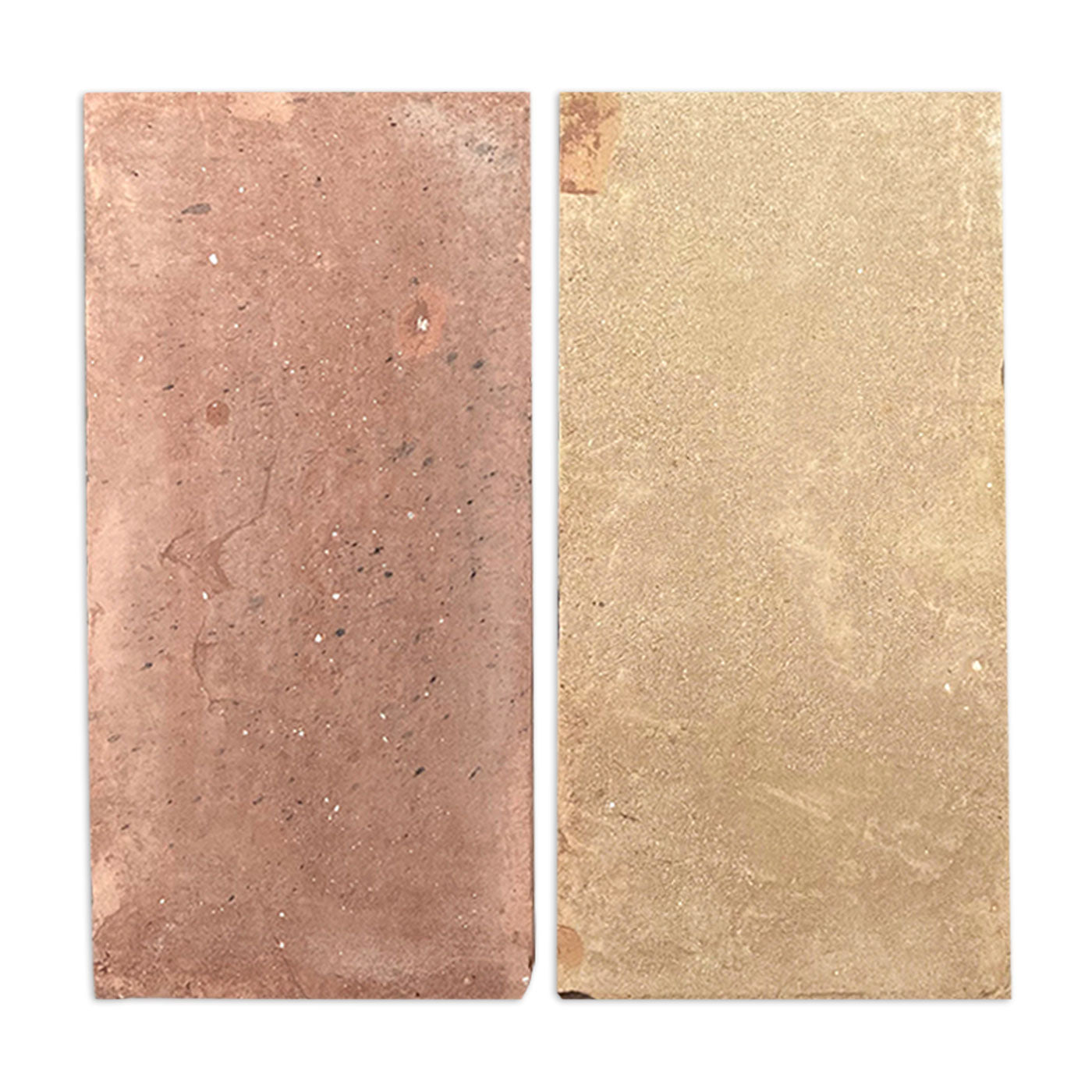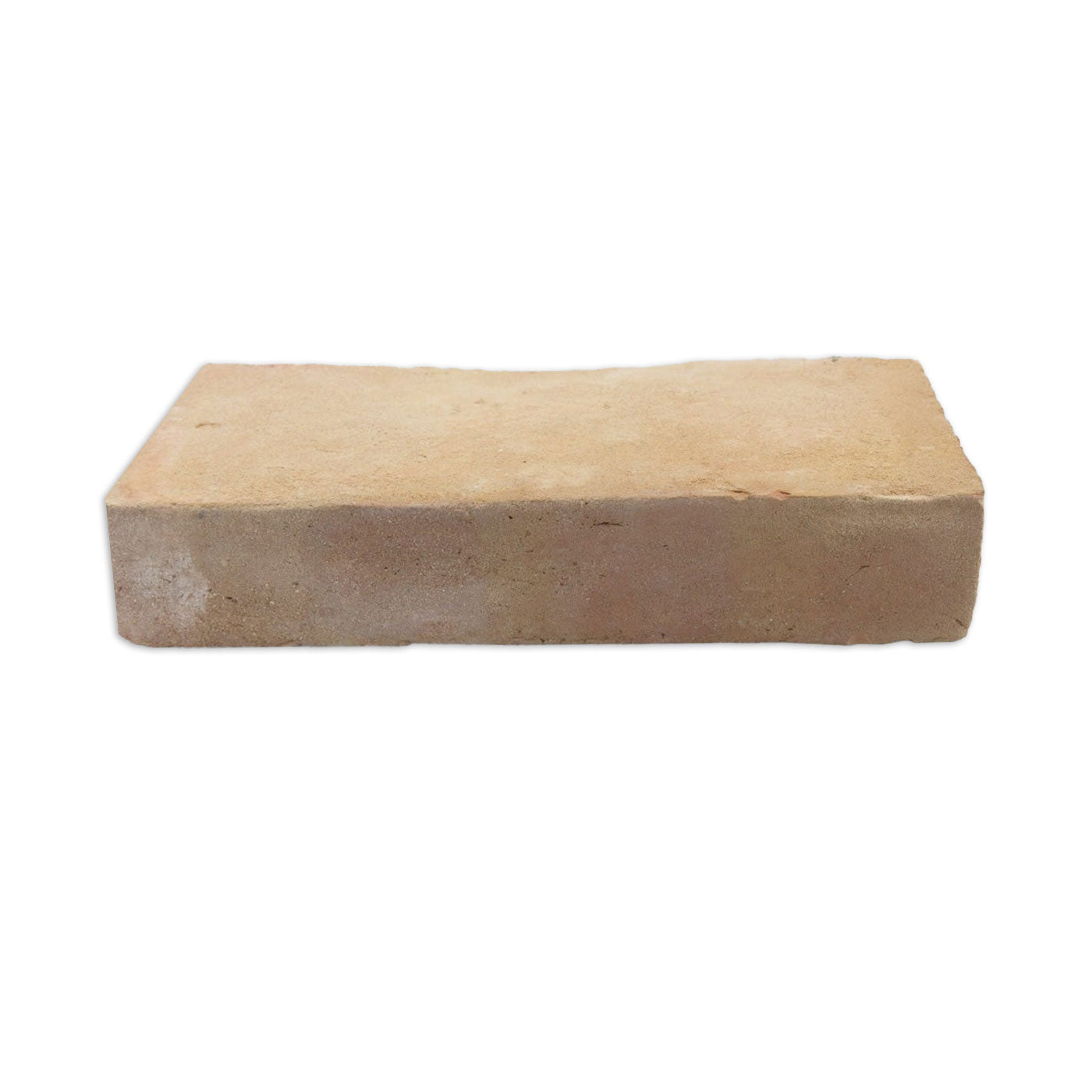-

-
 Design Motel Marfa
Design Motel Marfa -
 Design Motel Marfa
Design Motel Marfa -
 Design Motel Marfa
Design Motel Marfa -

-
 Paver Planter Box
Paver Planter Box -

-

-

Terracotta Brick Paver 6x12x2
Terracotta Brick Paver 6x12x2
Pavers are made with a natural, fragile clay. Breakage during transit is to be expected. We recommend ordering 25-35% overage to ensure you have enough to complete your project.
Price $40.00
This is an intentionally distressed, highly varied, and imperfect handmade product. Expect large chips, missing chunks, surface cracks, crevices, rough edges, and other heavily weathered features throughout the batch. These characteristics are typical of this natural clay, artisan-made material and are not considered defects. Each piece will display its own unique level of texture and wear, contributing to the overall rustic, timeworn look of the installation.
- Size: 6″x12"x2"
-
Sizing is nominal and can vary due to the handmade nature of our tiles and the traditional production process.
- Variation: V3
- 1 sq.ft.: 2.2 pcs
Best Suited For
- Projects where a heavily distressed, old-world, or reclaimed look is desired
- Pathways, garden installations, and designs that embrace natural irregularity
- Installations where variation and imperfection are part of the aesthetic vision
Not Recommended For
- Applications requiring clean edges, smooth surfaces, or uniformity
- Projects needing precise, rectified dimensions or a modern/minimalist finish
- Installations where chips or rough edges would be considered unacceptable
Couldn't load pickup availability









YOU MAY ALSO LIKE
-
 IN STOCK
IN STOCKSmooth Gloss 12x12
Loading price in sq.ft...Regular price $5.50Regular priceUnit price / per -
 IN STOCK
IN STOCKBreeze Block Petalo
Loading price in sq.ft...Regular price $5.20Regular priceUnit price / per -
 IN STOCK
IN STOCKMillennial Lotería Relief Tiles
Loading price in sq.ft...Regular price From $10.00Regular priceUnit price / per -
Smooth Satin 12x12
Loading price in sq.ft...Regular price $6.00Regular priceUnit price / per -
Hexagon Smooth Gloss 12
Loading price in sq.ft...Regular price $5.50Regular priceUnit price / per -
Jardín de Luna Herbs San Miguel Midnight 8x8
Loading price in sq.ft...Regular price $10.00Regular priceUnit price / per -
 IN STOCK
IN STOCKBreeze Block Escala
Loading price in sq.ft...Regular price $5.00Regular priceUnit price / per -
D'Hanis Red Terracotta 12x12
Loading price in sq.ft...Regular price $8.00Regular priceUnit price / per -
Jardín de Luna Rabbit San Miguel Midnight 8x8
Loading price in sq.ft...Regular price $10.00Regular priceUnit price / per -
 IN STOCK
IN STOCKBreeze Block Ventana
Loading price in sq.ft...Regular price $5.20Regular priceUnit price / per -
 IN STOCK
IN STOCKOrganic Terracotta 12x12
Loading price in sq.ft...Regular price $4.80Regular priceUnit price / per -
Meadow 2x6
Loading price in sq.ft...Regular price $1.40Regular priceUnit price / per -
Jardín de Luna Deer San Miguel Midnight 8x8
Loading price in sq.ft...Regular price $10.00Regular priceUnit price / per -
 IN STOCK
IN STOCKBreeze Block Tigre
Loading price in sq.ft...Regular price $6.85Regular priceUnit price / per -
 IN STOCK
IN STOCKBreeze Block Dulce
Loading price in sq.ft...Regular price $5.20Regular priceUnit price / per -
 IN STOCK
IN STOCKMeadow 4.25x4.25
Loading price in sq.ft...Regular price $2.00Regular priceUnit price / per -
 IN STOCK
IN STOCKGlazed Thin Brick Light Green 2.5x8
Loading price in sq.ft...Regular price $2.50Regular priceUnit price / per -
Glazed Thin Brick Noir Black 2.5x8
Loading price in sq.ft...Regular price $2.50Regular priceUnit price / per





























